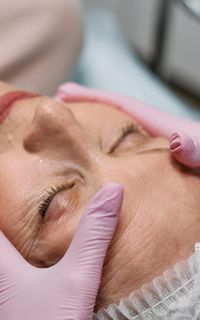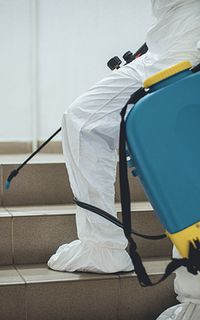
RSPH Level 2 Award in Tackling Gambling-related Harm
- Available at 11 centres
- Level 2 | Ref. 610/5155/X

RSPH Level 4 Award in Suicide First Aid
- Available at 1 centre
- Level 4

RSPH Medical Aesthetics Certificate: Understanding the safe use of botulinum toxin in cosmetic procedures
- Available at 5 centres
- Level 4

RSPH Medical Aesthetics Certificate: Understanding the safe use of dermal fillers in cosmetic procedures
- Available at 5 centres
- Level 4

RSPH Level 2 Award for Proficiency in Poultry Meat Inspection
- Available at 6 centres
- Level 2 | Ref. 603/5305/3

RSPH Level 2 Certificate for Proficiency in Poultry Meat Inspection
- Available at 3 centres
- Level 2 | Ref. 603/5304/1

RSPH Level 4 Diploma for Proficiency in Meat Inspection
- Available at 4 centres
- Level 4 | Ref. 603/7562/0

RSPH Level 4 Award for Proficiency in Pre-Slaughter Inspection of White Meat Species
- Available at 3 centres
- Level 4 | Ref. 603/7563/2

RSPH Level 4 Certificate in Nutritional Food Service Providers
- Available at 4 centres
- Level 4 | Ref. 610/1645/7

RSPH Level 2 Award In Using Aluminium Phosphide Safely for the Management of Vertebrate Pests
- Available at 13 centres
- Level 2 | Ref. 601/0601/3

RSPH Level 3 Award in the Safe use of Fumigants for the Management of Invertebrate Pests
- Available at 3 centres
- Level 3 | Ref. 601/8142/4

RSPH Level 3 Certificate in the Safe Use of Fumigants for the Management of Invertebrate Pests
- Available at 4 centres
- Level 3 | Ref. 601/8143/6

RSPH Level 2 Award in Infection Prevention and Control for Special Procedures Practitioners (England)
- Available at 8 centres
- Level 2 | Ref. 603/4597/4

RSPH Level 1 Award in Health and Safety in a Construction Environment
- Available at 21 centres
- Level 1 | Ref. 601/6345/8


